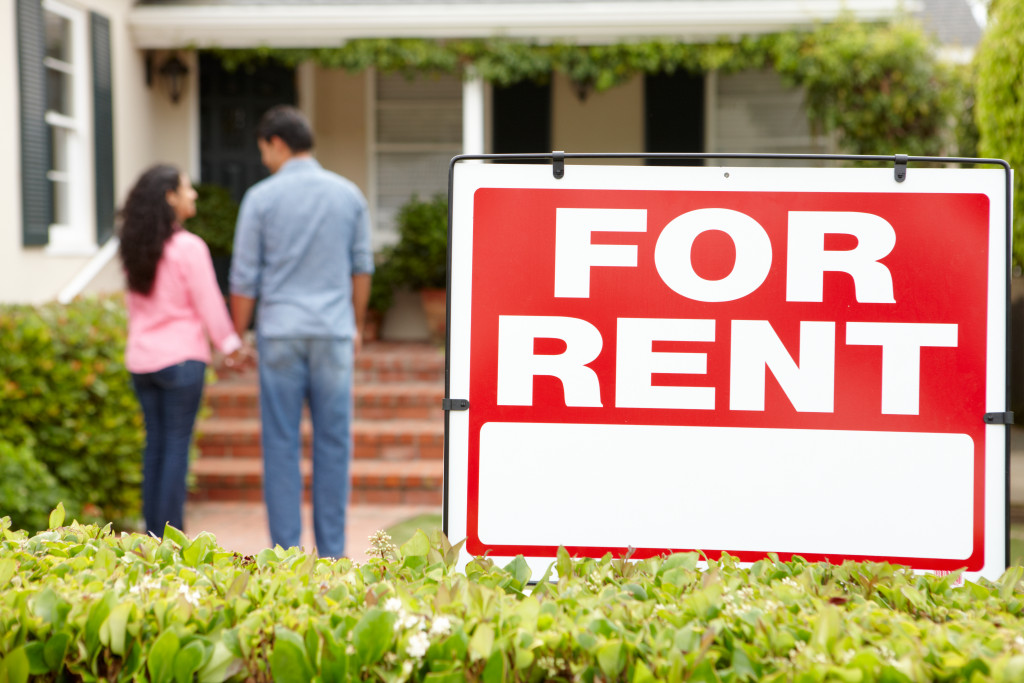Rental properties can be a great source of income. But, like any business investment, they come with expenses that must be managed and accounted for. One of the most significant money drains on landlords is the energy costs of running a rental property. Fortunately, there are many ways to improve energy efficiency in your rental property, resulting in lower utility bills and improved profits. Here are four tips to help you get started maximizing energy efficiency in your rental unit.
1. Upgrade Appliances
One common way tenants save on electricity is by upgrading old appliances with more efficient models. This will reduce monthly energy bills and offer incentives from local utilities for making the switch. Look for energy-efficient models with the Energy Star label, which offers rebates and other incentives. When replacing a refrigerator, opt for one below the Energy Star rating so tenants can get the most bang for their energy savings.
When replacing a washing machine, look for one certified by the EPA’s WaterSense Program. This ensures that the appliance uses 20% less water than older models. Doing laundry with an Energy Star-rated washer can reduce energy costs by up to 25%. When looking for a dishwasher, ensure it has adjustable temperature settings and delay start options so tenants can run their dishwasher at night when electricity rates are lower.
In addition to upgrading appliances, tenants can use other money-saving techniques, such as setting their thermostats to an appropriate temperature and using ceiling fans in rooms that get a lot of sun during the day. Air seal any cracks around windows and water pipes to reduce heat loss. Insulating walls and attics can also help reduce energy costs.
2. Utilize Natural Light
Encourage tenants to make use of natural light whenever possible. This can be done by installing blinds or curtains that filter out direct sunlight during the day and utilizing natural light in living rooms, kitchens, and other shared spaces. Take advantage of the sun’s free energy by positioning furniture near windows to maximize natural illumination.
Windows that face south and east will receive the most sunlight, while those facing north will illuminate the interior during periods of bright morning light. If possible, it’s also recommended including a skylight to provide natural illumination throughout the day. During summer months, consider using shades such as shutters or awnings to block midday sunlight and reduce the need for air conditioning.
Good ventilation is another vital component when utilizing natural light effectively. Make sure that windows are well-sealed, with no air leaks or drafts, to maximize airflow throughout the space and keep interior temperatures consistent. Opening nearby doors and windows allow a pleasant breeze to flow through the room, creating a comfortable atmosphere.
In addition to natural light and ventilation, consider adding additional features such as solar panels or energy-efficient lighting fixtures. These can help further reduce the amount of electricity consumed and lower utility bills while providing plenty of illumination throughout any space. Combined with natural light, these features can create an energy-efficient, comfortable, and cost-effective environment.
3. EICR Inspection

An Electrical Installation Condition Report (EICR) is an inspection of the electrical systems in a rental property. Not only is this important for safety purposes, but it can also help identify areas where energy is wasted or lost. A technician can then repair and replace faulty wiring, which will help reduce energy bills.
During an EICR for estates, the technician will check for any loose connections and other risks that could lead to a fire or electric shock. The technician will also look at the condition of electrical appliances, such as the circuit breakers, switches, and fuse boxes. Any faulty wiring or equipment that needs replacing will be identified, and advice will be given on improving the system.
An EICR inspection must occur regularly, as electrical systems can deteriorate over time and cause safety risks. This type of inspection is required for all rental properties every five years, but landlords are also advised to have them carried out sooner if there are any concerns about the existing system. An EICR inspection is also a legal requirement for recently purchased or refurbished properties.
4. Upgrade Light Bulbs
Tenants can reduce electricity costs by replacing old light bulbs with LED or compact fluorescent (CFL) options. LEDs are the most energy-efficient, lasting up to 25 times longer than traditional bulbs and using up to 90% less energy. CFLs use around 75% less energy than regular bulbs and last roughly ten times longer. Encourage tenants to replace all their standard incandescent bulbs with these more efficient options for significant savings over time.
It is also important to educate tenants on the benefits of smart lighting. Smart lights are connected to Wi-Fi, allowing users to control the brightness and color of their lights from a mobile device or voice assistant. They can be set up with motion sensors, which will turn off the light when there is no movement in a room for a certain amount of time. Smart lights are energy efficient and provide convenience and security to tenants.
Following safety guidelines and using the right tools is essential when replacing bulbs. The wattage should never exceed that stated on the fixture or indicated on the existing bulb. When changing CFLs, dispose of them properly, as they contain small amounts of mercury. LED bulbs remain cool and do not need to be disposed of specially.
In Closing
Making your rental property as energy-efficient as possible is vital for reducing utility bills and improving profits for landlords. These four tips are just a few ways to improve your rental unit. From upgrading appliances to utilizing natural light, these improvements help tenants save money and create a more comfortable and efficient living environment.

